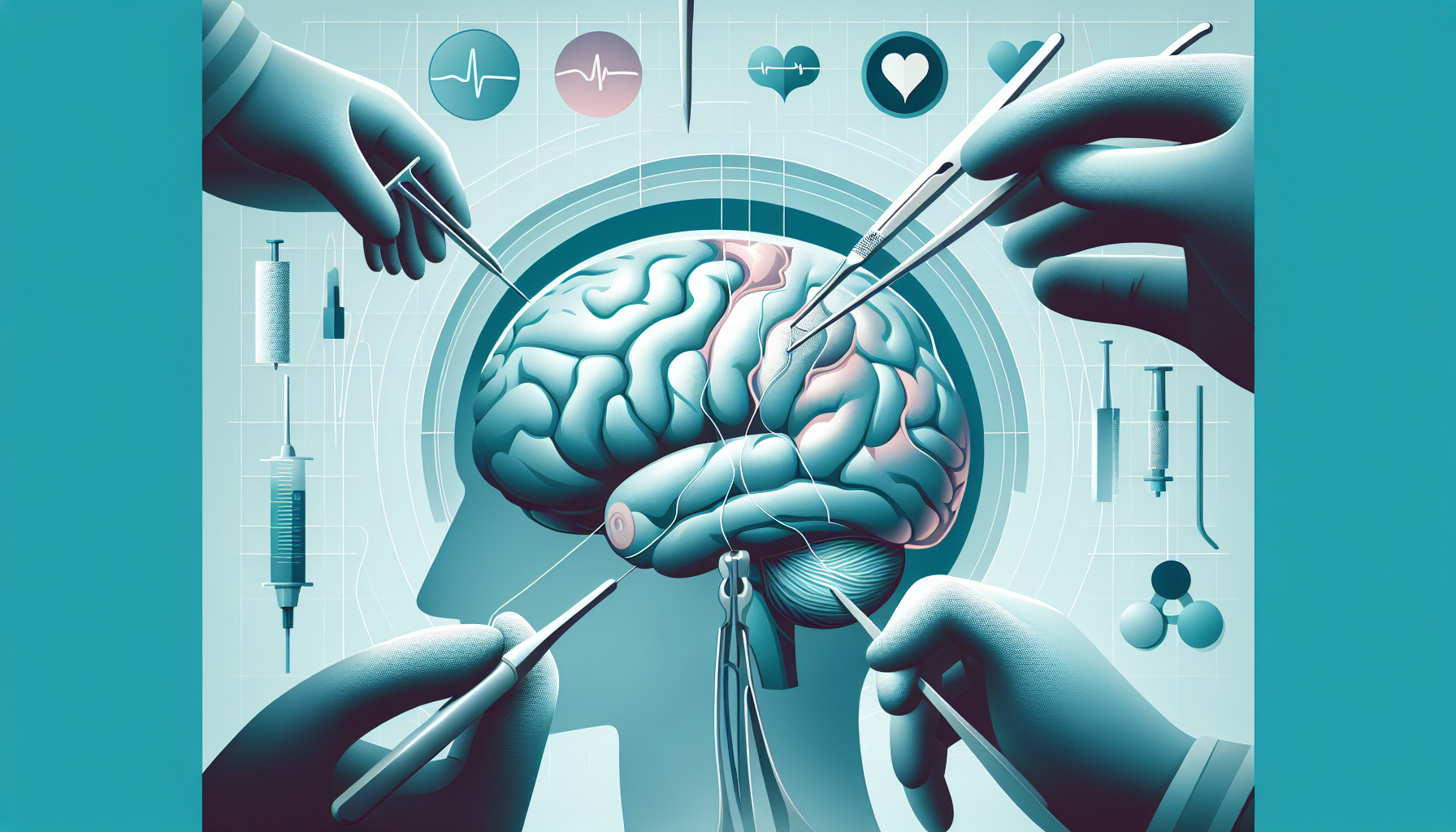Our Summary
This research paper looks at the work of Wilder Penfield, a neurosurgeon active from the 1930s to the 1960s, who was known for using electrical brain stimulation (EBS) during surgery when patients were awake. This technique often led to patients recalling memories, and Penfield’s records of these instances have been very influential in the field of neuroscience, even though some of his interpretations are now considered questionable. Despite the significance of his work, there have been no similar studies or reports since, which the authors of the paper find surprising. They suspect this is due to changes in how surgeries are conducted, including the use of anesthetics, time restrictions, and insufficient follow-up discussions, as well as changes in how EBS is used. The paper suggests that if such memory recalls still happen during surgery, they should be thoroughly recorded as they could provide valuable insights into how long-term memory works.
FAQs
- Who was Wilder Penfield and what was he known for in the field of neuroscience?
- Why are there no similar studies or reports to Penfield’s work in recent times according to the research paper?
- Why does the research paper suggest that memory recalls during surgery should be thoroughly recorded?
Doctor’s Tip
A doctor might tell a patient undergoing a craniotomy to follow post-surgery care instructions closely, including taking prescribed medications, attending follow-up appointments, and avoiding strenuous activities to ensure proper healing and recovery. It is also important to report any unusual symptoms or changes in condition to your healthcare provider promptly.
Suitable For
Patients who are typically recommended for craniotomy include those with brain tumors, vascular malformations, traumatic brain injuries, and certain types of epilepsy that do not respond to medication. Additionally, patients with certain neurological conditions such as Parkinson’s disease, essential tremor, and trigeminal neuralgia may also undergo craniotomy for treatment. It is important for patients to undergo a thorough evaluation by a neurosurgeon to determine if craniotomy is the best course of action for their specific condition.
Timeline
Before a craniotomy, a patient typically undergoes a series of preoperative tests and consultations to assess their overall health and determine the best course of action for their specific condition. This may include brain imaging scans, blood tests, and discussions with the surgical team.
During the craniotomy procedure, the patient is placed under general anesthesia, and the surgeon makes an incision in the scalp to access the skull. The bone flap is removed to expose the brain, and the necessary surgical intervention is performed. In some cases, the patient may be awake during the procedure to help the surgeon map out important areas of the brain and minimize damage to critical functions.
After the craniotomy, the patient is monitored closely in the recovery room to ensure that they are stable and recovering well from the surgery. They may experience some pain, swelling, and discomfort in the days following the procedure, and will be prescribed pain medication and instructed on how to care for the surgical site.
In the weeks and months following the craniotomy, the patient will have follow-up appointments with their surgical team to monitor their progress, address any concerns or complications, and discuss any necessary rehabilitation or further treatment. They may also undergo additional imaging scans to assess the success of the surgery and monitor any changes in the brain.
Overall, the timeline of a patient’s experience before and after a craniotomy involves a thorough evaluation and preparation process, the surgical procedure itself, and ongoing monitoring and follow-up care to ensure the best possible outcome for the patient.
What to Ask Your Doctor
- Can you explain the specific reasons why a craniotomy is being recommended for me?
- What are the potential risks and complications associated with a craniotomy procedure?
- What is the expected recovery time and rehabilitation process after a craniotomy?
- Will I need any additional treatments or therapies following the surgery?
- How will the surgery impact my cognitive function, memory, and overall quality of life?
- Are there any alternative treatment options to consider before proceeding with a craniotomy?
- How many craniotomy procedures have you performed, and what is your success rate?
- What can I expect during the surgery itself, including anesthesia, monitoring, and post-operative care?
- How long will I need to stay in the hospital following the craniotomy procedure?
- What are the long-term implications and potential outcomes of having a craniotomy?
Reference
Authors: Curot J, Roux FE, Sol JC, Valton L, Pariente J, Barbeau EJ. Journal: Neurosurgery. 2020 Aug 1;87(2):E130-E137. doi: 10.1093/neuros/nyz553. PMID: 31914177
